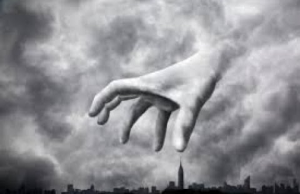[cross-posted at C4SS, BHL, and POT]
No one should raise the stars and stripes on the 4th. The proper flag to raise on the 4th of July is the black flag of anarchy.
The Fourth of July commemorates the anniversary of the American Declaration of Independence, a document which the anarchist must view with mixed emotions.
The document’s stirring proclamation that “all men are created equal,” with inalienable rights to “life, liberty, and the pursuit of happiness” that no government is entitled to infringe; its further insistence that all authority must depend on the “consent of the governed,” and that when such authority becomes abusive it is the “right of the people to alter or to abolish it” – all of these are welcome statements of a philosophical outlook which, if logically pursued, leads inexorably to a much wider liberation (an implication clearly grasped at the time by many of the Revolution’s critics).
In Charles Johnson’s words, the Declaration enunciates
the revolutionary doctrine that we all, each of us, are the equal of every puffed-up prince and President – that as such you, personally, have every right to refuse the arbitrary orders of tyrants – to ignore their sanctimonious claims of sovereignty – to sever all political connections if you want – and to defend yourself from any usurper who would try to rule you without your consent. There is no man or woman on this earth who has the natural right to rule over you, and you have every right, whenever and wherever you will to do so, to oppose, withdraw, resist, and thus stand aright as a free and sovereign human being.
The logical conclusion of the radical equality proclaimed by the Declaration is not, however, what Jefferson or any of the other quasi-revolutionists thought it was. It is not home rule, and it is not republican government. It is not majoritarian democracy or the elective kingship that passes for the Presidency today. It is not democratic government or limited government; it is not any kind of government at all. If you, personally, are equal in rightful authority to your would-be rulers, and so have every right to tell them where they can go promulgate their law; if you, personally, have every right to refuse their demands and nullify their authority over you, at your discretion; if you have every right to withdraw your allegiance, and every right to defend yourself if they should come after you; then the logical conclusion is not popular sovereignty, but individual sovereignty, for each of us, which is to say, anarchy.
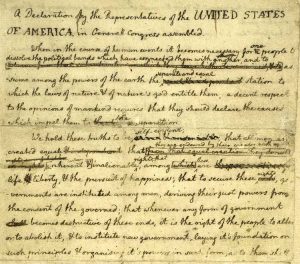
But the reality underlying the Declaration must give the anarchist pause. At the time that the political leaders of the rebellious colonies were boldly declaring all men equal and trumpeting the inalienable right to liberty, the institution of slavery existed throughout those colonies; indeed one of the charges the declaration brings against the British monarch is that he has “excited domestic insurrections” (i.e., slave rebellions) in America – as though such insurrections were not a clear case of people acting “to alter or to abolish” the regime whose “long train of abuses and usurpations” had kept Americans of African descent from exercising their rights of life, liberty, and the pursuit of happiness. In the words of abolitionist Thomas Day, “If there be an object truly ridiculous in nature, it is an American patriot, signing resolutions of independency with the one hand, and with the other brandishing a whip over his affrighted slaves.” (Thomas Jefferson’s original draft of the Declaration did contain a passage condemning the institution of slavery – though rather hypocritically characterizing it as something foisted on reluctant American colonists by the British government, a claim belied by the history of American slavery subsequent to separation from Britain – but that section was excised by the Continental Congress.)
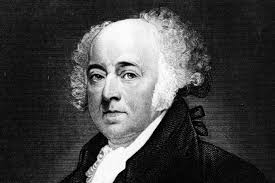
Likewise, when John Adams wrote that the anniversary of declaring independence ought henceforth to be celebrated “with shows, games, sports, guns, bells, bonfires and illuminations from one end of this continent to the other from this time forward forever more” – evidently endorsing the idea that the American Republic’s territory should expand indefinitely westward – he seems to have entertained no prospect of the continent’s existing inhabitants (identified by the Declaration as “merciless Indian savages”) being asked for their consent to this rising regime that was about to roll over them in its westbound juggernaut course.
And of course the slippery ambiguity of the generic “men” leaves the status of women among those supposedly “created equal” conveniently invisible.
When escaped slave Frederick Douglass gave his Independence Day oration in 1852, he asked “What to the Slave Is the Fourth of July?, and answered his own question thus:
[Y]our celebration is a sham; your boasted liberty, an unholy license; your national greatness, swelling vanity; your sounds of rejoicing are empty and heartless; your denunciations of tyrants, brass fronted impudence; your shouts of liberty and equality, hollow mockery ….
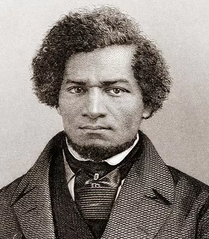
(Douglass lived to see the end of literal chattel slavery, but the relegation of slaves’ descendants to second-class status would last far longer, and in many ways of course still persists today.)
The hypocrisy of the Declaration with regard to women and nonwhites is an issue that has finally percolated its way into mainstream public consciousness. But there is a further problem with the Declaration that has not yet done likewise, a problem visible to anarchists alone.
The aim of the Declaration of Independence is not to overthrow government as such, but rather to overthrow one government and replace it with another: “it is the right of the people to alter or to abolish [their government], and to institute new government.” The American colonies are to become “free and independent states,” laying claim to a “separate and equal station …. among the powers of the earth,” including “full power to levy war, conclude peace, contract alliances, establish commerce, and to do all other acts and things which independent states may of right do.”
It’s difficult not to hear in those lines the echo of the elders’ pleas to Samuel in the Bible, “that we also may be like all the nations; and that our king may judge us, and go out before us, and fight our battles.”
Charles Johnson says that “What was proclaimed on July 4th was not the establishment of a new government, but the dissolution of all political allegiance to the old one.” But it seems to me that it was both.

Here, in the Declaration of Independence, we see the foundation of the toxic American state, exercising its military imperial might, shaping commercial exchange to its requirements, eagerly joining the “powers of the earth” as one – and today the mightiest one – of that flock of predatory raptors.
Moreover, while insisting that governmental legitimacy rests on the “consent of the governed,” the Declaration offers no solution to the problem of what counts as consent, or what is to be done about those who do not consent. Is consent to be by majority vote? If so, how can this bind the minority? And how far can any consent to state authority be binding, if the right to liberty is truly “inalienable”? (To say nothing of the fact that voting rights were restricted to a minority in the early republic anyway – or that the claim of the signers of the Declaration to be expressing the will of the populations they “represented” was dubious by even the most generous standard.)

But the American state, it may be objected, has provided its citizens with at least a wide range of rights and liberties. Has it, though? Certainly American citizens on average enjoy a level of freedom greater than that of people in many other countries. But in Kevin Carson’s words:
Who has given us our rights? Nobody. We have taken them. Every right we have, we have because we fought for it from below. We have these rights because we resisted violations of them, because we fought those who violated them … and compelled the state to recognize them. …
Rights have never been granted by authority. They have always been asserted against authority, and won from it. We don’t have our rights because the government and its soldiers are nice – but because we’re not. It’s… the dissidents, the hell-raisers, the dirty flag-burning hippies, the folks with bad attitudes towards authority in general, who have given us our rights throughout history, by fighting for them.
It’s easy to see, then, how the legacy of the Declaration of Independence might be viewed as purely negative – a veil of libertarian rhetoric cloaking and legitimizing a massive engine of aggression, oppression, and exploitation – and its annual commemoration a mere occasion for fatuous self-congratulation on the part of the ruling elite, their shills, and their dupes.
But if that’s a legacy of the Declaration that flows through the governmental institutions that have taken its words as their legitimation, the Declaration also has a second, distinct legacy that flows outside and against government, through the traditions of “dissidents” and “hell-raisers” invoked by Carson.
As I’ve written elsewhere,
any given theory is more than just a collection of its author’s opinions; it’s a structure in the space of reasons, with its own internal dynamic, its natural tendencies of development, its stresses and strains, its “objective tendency of the problematic.”
Thus the ideals that the Declaration has helped to establish in the deep layers of the American consciousness (and indeed more widely) – such ideals as liberty, equality, inalienable rights, the pursuit of happiness, justified revolution, and the illegitimacy of nonconsensual authority – have a momentum of their own that leads them to overspill the narrow confines of the document’s original purposes. That’s why it’s no coincidence that those outside the American state, struggling against that state, or against systems of oppression in which that state played a central role – abolitionists, feminists, labour activists, anti-imperialists, civil rights activists, LGBT liberationists, free-market anarchists, communist anarchists, and others – have so often turned to the language of the Declaration of Independence to express their aspirations.
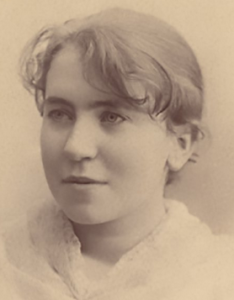
The Declaration of Sentiments issuing from the 1848 Seneca Falls Convention for Women’s Rights was closely modeled on the Declaration of Independence; so was Emma Goldman’s anarchist manifesto of 1909, while the Black Panther Party’s 10-point platform of 1966 simply reproduces the Declaration’s preamble verbatim.
Frederick Douglass, in his aforementioned Independence Day oration, referenced the Declaration in saying: “Would you have me argue that man is entitled to liberty? that he is the rightful owner of his own body? You have already declared it.” An earlier black abolitionist, David Walker, wrote in 1829: “See your Declaration Americans!!! Do you understand your own language?”
Pre-Stonewall gay-rights activism often took the form of Independence Day marches in front of Philadelphia’s Independence Hall where the Declaration of Independence was signed; these events were called “Annual Reminders,” meaning specifically and explicitly reminders of the applicability of the Declaration’s language to the rights of gays.
In 1965, in the midst of the struggle against white supremacy, Martin Luther King Jr. gave an Independence Day oration of his own, in which he praised the Declaration – “Never before in the history of the world has a sociopolitical document expressed in such profound, eloquent and unequivocal language the dignity and the worth of human personality” – while at the same time noting that America has had a “schizophrenic personality, tragically divided against herself” in the disconnect between the principles it has “proudly professed” and those it has “sadly practiced.” In similar vein, the 1962 New Left Port Huron Statement cited the contradiction between the Declaration’s language and the ongoing reality of segregation as a “disturbing paradox.”
The language of the Declaration may serve as mere window-dressing for the American state, but it has been much more than that for those struggling against it.
What, then, to the anarchist, is the Fourth of July? If the Declaration’s legacy has two strands – one running through the state it served to establish, and serving to legitimate that state; and the other running outside that state and serving as a resource for resistance to the state – then while anarchists must condemn the first strand, they can celebrate the second.
Thus, for Charles Johnson, the Fourth of July can be a legitimate anarchist holiday:
Today is not a day for nationalist bromides; least of all is it a day for government or its laws or its foot-soldiers. It’s a day for radicals and revolutionaries. A day to proclaim independence, and a day to remember that the American Revolution, if it was worth anything, is far from over.
Other anarchists, like PunkJohnnyCash, have offered a different suggestion:
Your flag represents the largest criminal syndicate in the history of mankind. Your “Independence day” is a lie, there is no independence within a state. You will be extolling the virtue of mass murderers. …
The statist can celebrate the union of their states. I will celebrate after the state’s rule. I will celebrate after the state when we will abolish the state. They will celebrate the birth of the unholy union of their states on the 4th of july. I will take the 5th of july to celebrate anarchy.
Join me on the 5th in your own celebration. Celebrate the 5th of July … this will be the true “independence day”.
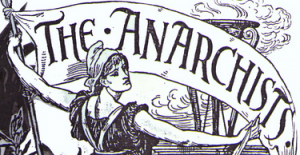
I think anarchists can reasonably disagree as to which strand of the Declaration’s legacy to treat as more salient, and thus in the same way as to whether to regard the Fourth of July as something that can be usefully redeemed and appropriated in the service of anarchism, or else as an unsalvageable chauvinistic ritual to be shunned as an “unclean thing.” (I’ll note in passing that one purely pragmatic reason to favor celebrating anarchist revolution on the fourth rather than, e.g., the fifth is that people are more likely to get off from work on that day – and if you like big fireworks shows, that’s also when they hold ’em.)
But those anarchists inclined toward a celebration of the more libertarian strand in the Declaration’s legacy must beware of its pitfalls. For Declaration-based resistance to the American state can all too easily turn into a plea for mere inclusion in the establishment power structure: “See, we speak the language of your sacred texts too! Let us in, so that we too may participate in being one of the ‘powers of the earth’.” Appeal to the Declaration can also serve as a way for people to still feel patriotic while struggling against the state – and that’s seriously dangerous, since patriotism has a tendency to lure people into ultimately supporting the state and proposing merely minor reforms within a persistingly oppressive framework. Emma Goldman in 1917 called the anarchist “the real patriot,” the kind who “loves America with open eyes”; but she said this in a courtroom, while on trial for subversion, a milieu conducive to defensive speech rather than to accurate speech; nine years earlier she had more frankly denounced patriotism as a “menace to liberty” and a “superstition artificially created and maintained through a network of lies and falsehoods.”
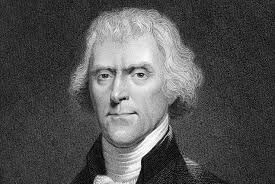
The Declaration is also difficult to separate completely from the personality of its author, Thomas Jefferson; and while Jefferson was certainly a brilliant and often insightful thinker, worthy of study, he was also a man who kept people enslaved on his farm like an 18th-century Ariel Castro, championed Indian “removal” (for the Indians’ own good, naturally), and abused power as President in precisely the way he warned that powerful people would abuse power. If one seeks a manifesto, there are less problematic authors. And from a purely rhetorical point of view, while appeal to the Declaration can on the one hand be an effective way of leveraging many Americans’ pre-existing values on behalf of anarchism, on the other hand such appeals can also serve to alienate those Americans for whom reference to Jefferson inexorably conjures up the slave pens of Monticello.
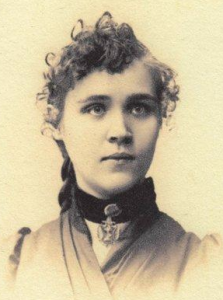
Moreover, even if Jefferson had been an anarchist saint, one must always beware of the risk of fetishizing a particular document; in Nicolas Walter’s words, “Anarchism has no prophets and no sacred texts … for more than a century anarchists have refused to give authority to writers and books as much as to rulers and laws.”
In her 1908 essay “Anarchism and American Traditions” (not a sacred text! but a good one), Voltairine de Cleyre praised the ideas behind the Declaration of Independence and noted with approval their anarchistic implications; but she also added: “Let the guarantee of free speech be in every man’s determination to use it, and we shall have no need of paper declarations.”
In closing, I wish you a happy Anarchist Revolution Day – but with the caveat that every day is Anarchist Revolution Day.
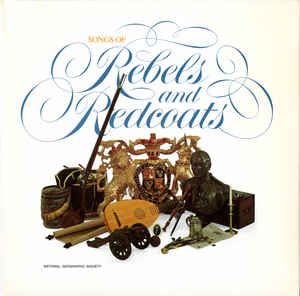










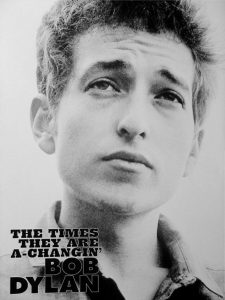
 But this time the youth revolt is described in science-fiction metaphors of a new species supplanting the old (“Homo sapiens have outgrown their use …. gotta make way for the Homo superior”) and of an alien invasion (not the following year’s friendly sparkling Starman, sequestering himself to refrain from blowing our minds, but a terrifying “hand reaching down” from a “crack in the sky”). The song echoes Bulwer-Lytton’s The Coming Race (though his genetic supermen came from a crack in the ground rather than from one in the sky), H. G. Wells’s Food of the Gods (in which a rising generation of giants, intended as metaphors for the new social order, do battle with their parents’ generation, with the young giants’ leader described as “a great black outline against the starry sky, a great black outline that threatened with one mighty gesture the firmament of heaven”), Arthur C. Clarke’s Childhood’s End (where aliens in orbit cause the next generation of human children to become superhuman and lose all connection with previous humanity), and, once again, 2001: A Space Odyssey (with its hyper-evolved, no-longer-human Starchild arriving in the skies above Earth with an unknown purpose).
But this time the youth revolt is described in science-fiction metaphors of a new species supplanting the old (“Homo sapiens have outgrown their use …. gotta make way for the Homo superior”) and of an alien invasion (not the following year’s friendly sparkling Starman, sequestering himself to refrain from blowing our minds, but a terrifying “hand reaching down” from a “crack in the sky”). The song echoes Bulwer-Lytton’s The Coming Race (though his genetic supermen came from a crack in the ground rather than from one in the sky), H. G. Wells’s Food of the Gods (in which a rising generation of giants, intended as metaphors for the new social order, do battle with their parents’ generation, with the young giants’ leader described as “a great black outline against the starry sky, a great black outline that threatened with one mighty gesture the firmament of heaven”), Arthur C. Clarke’s Childhood’s End (where aliens in orbit cause the next generation of human children to become superhuman and lose all connection with previous humanity), and, once again, 2001: A Space Odyssey (with its hyper-evolved, no-longer-human Starchild arriving in the skies above Earth with an unknown purpose).